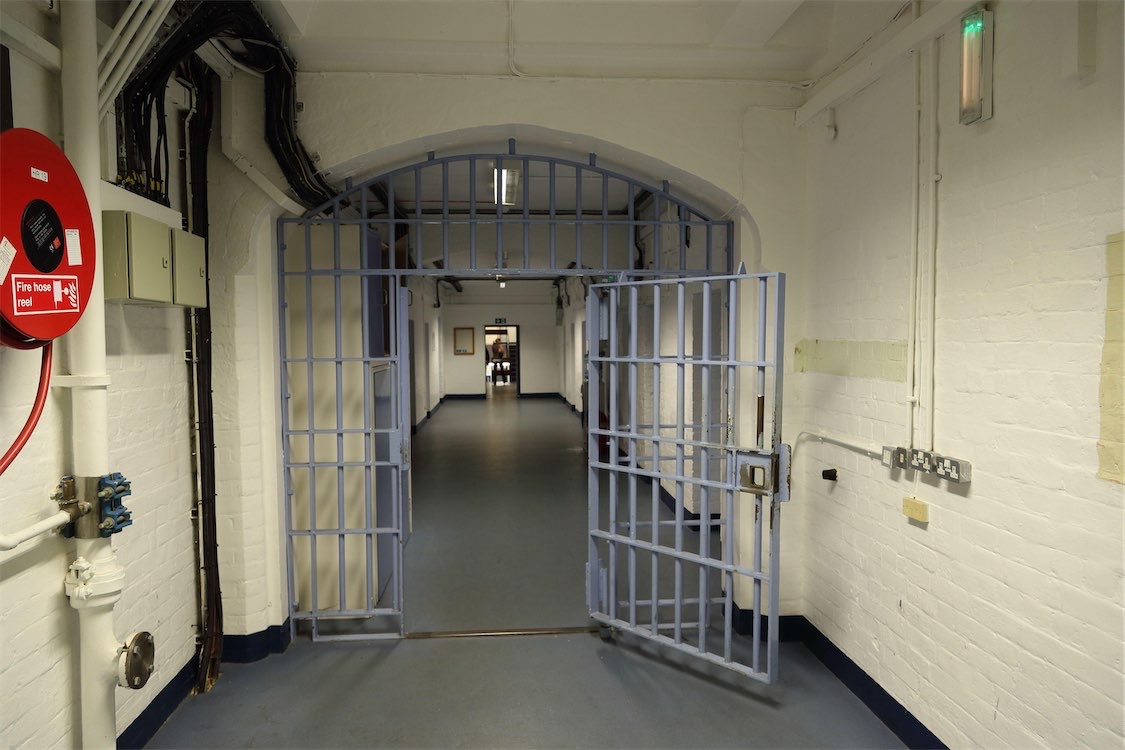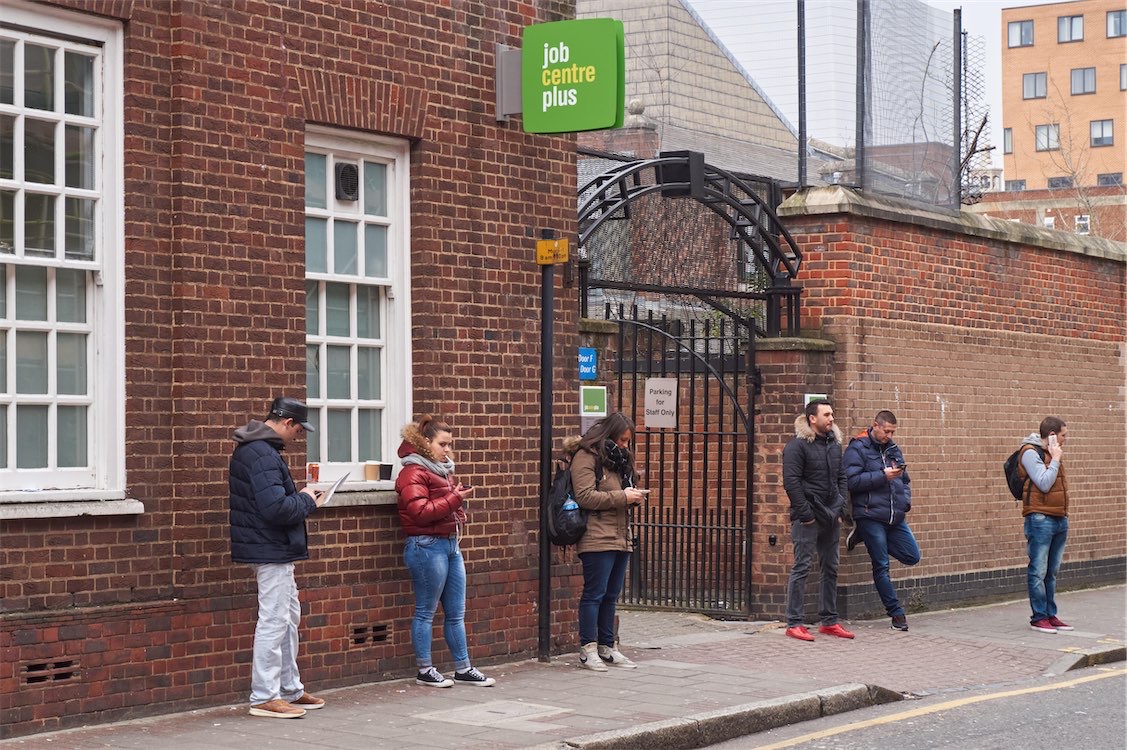HS2 And A-Levels Scrapped: All Of Rishi Sunak's Conservative Conference Announcements
Rishi Sunak gives his Conference speech in Manchester (Alamy)
9 min read
Prime Minister Rishi Sunak has told Conservative Party conference that government will cancel the rest of HS2, will overhaul the education system for 16-18 year olds by scrapping A-levels and phase out smoking by gradually raising the legal age.
Sunak argued that the "old consensus" of HS2 was broken and required change, setting out how the government intends to use the money on alternative transport infrastructure.
While the line between Birmingham and Euston will be completed, Sunak announced that a new Euston Development Zone would be created, building thousands of new homes and a rail station.
The announcement follows days of speculation over whether the government had come to a final decision over whether to scrap the long-running project.
The Prime Minister made a number of other significant policy announcements, including scrapping A-levels and replacing them with a new qualification for 16-18 year olds, and raising the legal smoking age.
Change was a key theme running through Sunak's speech and announcements: he mentioned the word "change" 32 times.
Here are all the key announcements made by the prime minister in his conference speech:
Scrapping the rest of HS2
-resized.jpg) The prime minister confirmed the HS2 line will not be constructed between Birmingham and Manchester (Alamy)
The prime minister confirmed the HS2 line will not be constructed between Birmingham and Manchester (Alamy)
Sunak confirmed that the HS2 leg between Birmingham and Manchester will be scrapped, but pledged to instead invest in multiple other projects.
“What we really need is better transport connections in the north, a new network north that will join up our great towns and cities in the northern Midlands," he said.
“HS2 is the ultimate example of the old consensus. The result is a project whose costs have more than doubled, which has been repeatedly delayed and it is not scheduled to reach here in Manchester for almost two decades. and for which the economic case has massively been weakened with the changes to business travel post Covid.
“I say to those who backed the project in the first place: the facts have changed and the right thing to do when the facts change is to have the courage to change direction."
He said that the HS2 project would be replaced by £36bn investment into hundreds of other projects, including rail hubs in the midlands, linking up Manchester and Liverpool, and upgrading rail lines in Wales.
Confirming the line between Birmingham and Euston will be completed, Sunak said a new Euston Development Zone would be created, building thousands of new homes and a rail station.
However, the proposals of new projects have not allayed fears from some that the government might struggle to delivering levelling up to all regions of the UK.
Zoë Billingham, director of Institute for Public Policy Research North, said it was a "double blow" for the North.
“The government has played fast and loose with HS2 and scrapping the Manchester leg is a betrayal of the North," she said.
“Transport is the backbone of rebalancing our regions. New promises heard today to redeploy HS2 funding – across the whole country – not only undermines levelling up but also lacks credibility.
“Northern Powerhouse Rail and HS2 are in the long-term interest of the country. This is a double blow for the North.”
Replacing A-levels with new qualification
 Pupils will study a new qualification up to age 18 which will include some form of Maths and English in the curriculum (Alamy)
Pupils will study a new qualification up to age 18 which will include some form of Maths and English in the curriculum (Alamy)
A-levels will be replaced by a new qualification for 16-18 year olds, called the Advanced British Standard.
Sunak described reforming the education system as “one of the biggest levers we have to change the direction of our country”.
“We will introduce the new rigorous knowledge rich advanced British Standard, which will bring together A-levels and T-levels into a new single qualification for our schools,” he said.
“This will finally deliver on the promise of parity of esteem between academic and technical education because all students will sit the Advanced British Standard.
“We will raise the floor ensuring that our children leave school literate and numerate because with the Advanced British Standard, all students will study some form of Maths and English to 18, with extra help for those who struggle most in our country. No child should be left behind.”
He added that students will spend at least 195 hours more with a teacher and would typically study five subjects at this level rather than the current typical three subjects, to bring the UK in line with global economic competitors.
To address the crisis in teacher retention, the prime minister announced that those who teach “key subjects” in schools would receive special bonuses of up to £30,000 tax free over the first five years of their career.
“My main funding priority in every spending review from now on will be education. Why? Because it's the closest thing we have to a silver bullet,” Sunak added.
Some in the education sector have welcomed the announcement, arguing that refining education for 16-18 year olds is particularly important in order to reduce socioeconomic inequality.
Sir Peter Lampl, founder and chairman of the Sutton Trust and chairman of the Education Endowment Foundation, said it would give young people more choice and provide greater access to opportunities.
“The proposed English baccalaureate is a major step which will significantly improve social mobility," he said.
"Under the current A-Levels system, young people are forced to specialise far too early. This impacts disadvantaged youngsters the most, as they are less likely to have access to good careers guidance or advice from family members.
“While there is much still to be worked out, the English baccalaureate is a very positive step for improving social mobility.”
Raising the smoking age year by year
 The smoking age will increase each year to discourage young people from taking it up (Alamy)
The smoking age will increase each year to discourage young people from taking it up (Alamy)
The prime minister announced he wanted to “break the cycle” of smoking addiction in order to “ease the more fundamental burden of demand on the NHS”.
The legal age at which people can buy cigarettes will be raised by one year every year.
“If we could break that cycle, if we could stop the start, we would be on our way to ending the biggest cause of preventable death and disease in our country,” Sunak said.
“So I propose that in the future we raise the smoking age by one year every year. That means a 14 year old today will never legally be sold a cigarette and that they and their generation can grow up smoke free.”
Cancer Research UK's Chief Executive, Michelle Mitchell, said the organisation would support the government to "quickly implement" the legislation to raise the age of sale.
“Raising the age of sale on tobacco products is a critical step on the road to creating the first ever smokefree generation," she said.
"The Prime Minister deserves great credit for putting the health of its citizens ahead of the interests of the tobacco lobby. Investing more in stop smoking services is essential for the nation.
“We will support the UK Government to quickly implement legislation to raise the age of sale, alongside their investment of more money in stop smoking services.”
However, some organisations felt the announcement was a "slippery slope".
Maxwell Marlow, Director of Research at the Adam Smith Institute, a neoliberal and free market think tank, said the government was focusing too much on "catchy dictats".
“Despite this year’s Conservative Party Conference slogan, this announcement is indicative of a Government who is focused on catchy dictats rather than on the long-term decisions this country really needs," he said.
"This effective ban on smoking is a Black Market’s Charter - criminals, as they do already, will ramp up their penetration into a legal and regulated tobacco market.
"Fundamentally, this is a deeply illiberal and unconservative policy. This is a slippery slope - and we might ask what sledgehammer the government uses next?”
Sunak also announced a crackdown on vaping, which has been subject to concerns from experts who fear it could have wide-ranging and serious health implications for young people.
“We must act before it becomes endemic,” Sunak insisted.
“So we will also bring forward measures to restrict the availability of vapes to our children, looking at flavours, packaging. displays and disposable vapes.
“As prime minister I have an obligation to do what I think is the right thing for our country in the long term.”
Extending sentences for serious crimes
 Sentencing will be tougher for those convicted of serious types of crime (Alamy)
Sentencing will be tougher for those convicted of serious types of crime (Alamy)
The prime minister said that tougher sentencing would be implemented for those who have committed serious crimes.
“There are some crimes so heinous, those who perpetrate them should spend the rest of their lives behind bars,” he said.
“So I can confirm that we will legislate for sexual and sadistic murderers to carry a full lifetime with no prospect of release.
“We are going to change this country and that means life means life. Now that shouldn't be a controversial position. The vast majority of hard working people agree with it."
Sunak added that he believed "virtue signaling has replaced common sense" in policing and that police needed to be tougher on any form of crime and antisocial behaviour.
"That's why we now have record numbers of police officers and every crime should be investigated," he said.
"Our streets will be safer, our communities more secure. No one should be afraid to walk home alone at night."
Tightening welfare rules
 The government will change welfare system rules to encourage people into work (Alamy)
The government will change welfare system rules to encourage people into work (Alamy)
Sunak confirmed that the government will reform the welfare system by tightening rules on work capability assessments.
He argued that taxpayers were having to “pick up the bill” for those deemed unfit to work.
“In 2011, one in five of those doing a work capability assessment were deemed unfit to work,” he said.
“But the latest figure now stands at 65 per cent. Are people three times sicker today than they were a decade ago? No, of course not.
“It's not good for our economy, it's not fair on taxpayers who have to pick up the bill and it's a tragedy for those two million people being written off.
“I refuse to accept this and that is why we are going to change the rules so that those who can work do work.”
